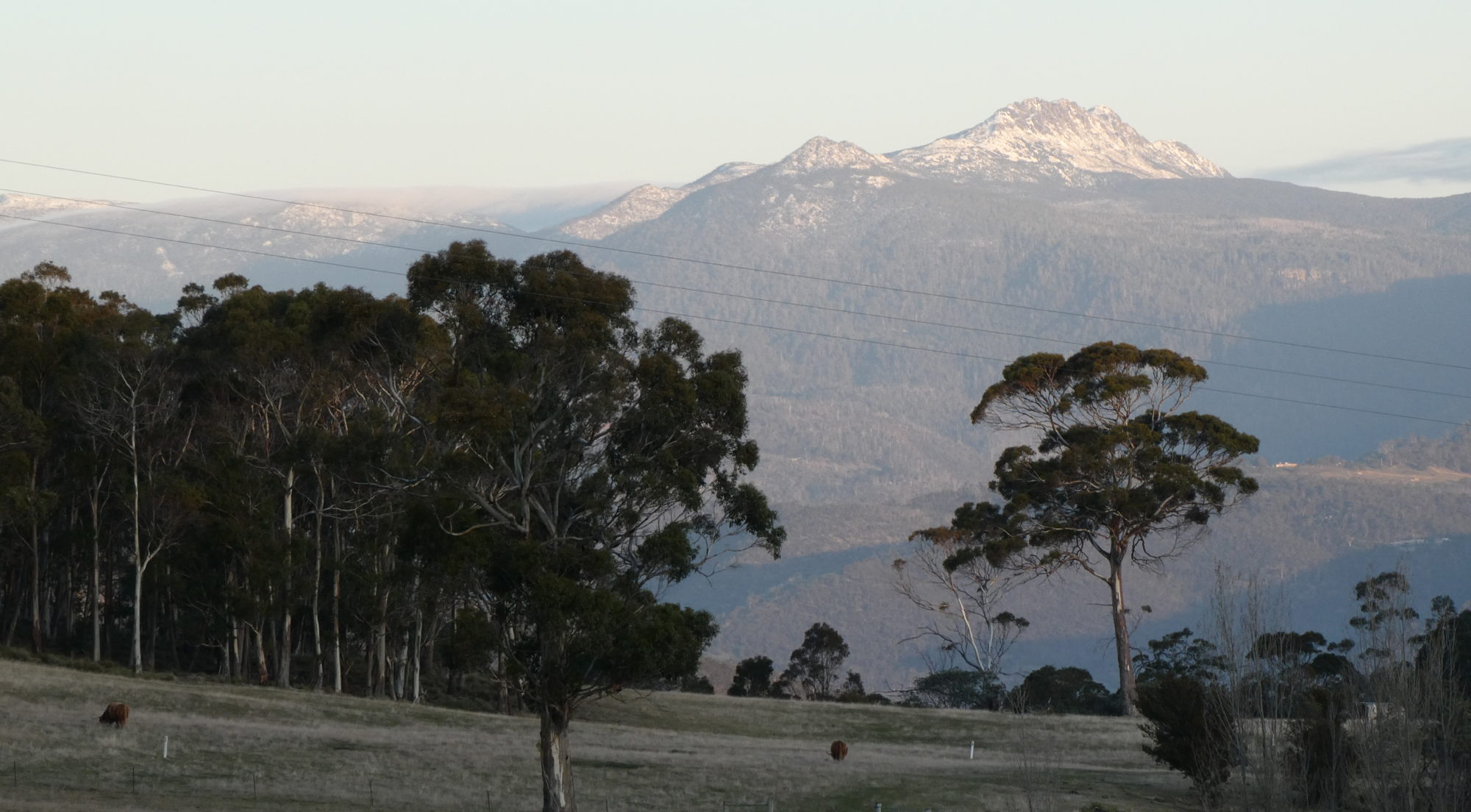Sundry
Japanese Red Hydrogen Breakthrough
WH Comments
“Wind and solar farms do not pay for the costs of the intermittency they cause. They therefore have little incentive to minimise them. It is a nonsense to compare the costs of wind with the costs of, say, gas or nuclear without including the back-up costs for wind necessitated by the intermittency…
(Excerpt from Tim Watkins blog https://consciousnessofsheep.co.uk/2022/06/09/greens-unlikely-to-survive-the-coming-winter/
Nuclear power
A recent article from Alice Friedemann’s Energyskeptic blog: https://energyskeptic.com/2022/advanced-nuclear-reactors-no-safer-than-conventional/ and an older one which mention costs:
https://energyskeptic.com/2020/nuclear-reactors-problems-in-the-news/
Bass Link
You were wondering recently why Tasmania remains part of the National Electricity Market. This article explains that the situation is very complicated and that many factors have to be considered when contemplating withdrawal.
https://www.abc.net.au/news/2022-06-09/tasmania-complex-energy-market-explained/101109628
Odds and sods
- Queensland and NSW are expecting blackouts this (unusually cold) evening (Monday). When the shit really hits the fan and blackouts become common I suspect that many people will be hiding the fact that they once voted for The Greens.
- As we are all too well aware, the mainstream media too often simply ignore the problem of intermittency and the problem of storage. At least this ABC article does not ignore the problem and issues some cautions and warnings: https://www.abc.net.au/news/2022-06-10/long-term-boost-to-energy-capacity-wont-stop-exit-from-coal/101139930
- Interesting article on a serious hydrogen plant at Whyalla: https://www.abc.net.au/news/2022-06-11/sa-planned-hydrogen-hub-explained/101138894
- Most Greens ignore the vital question of whether the existing grids can handle their demands on it for electric cars etc.
In the Dutch provinces of Limburg and Noord-Brabant, new companies for both the generation and purchase of electricity can no longer be connected to the high-voltage grid. Grid operator TenneT can no longer keep up with the “explosively” increased demand for electricity due to, among other things, charging stations and heat pumps. For households “there are no consequences for the time being”, says Dutch energy minister Rob Jetten. The provincial authorities called the decision “unacceptable
Queens Birthday honours list
I wish that Dr Simon Michaux had been awarded the highest honour possible under our awards system— perhaps “Living National Treasure” What! give one of our honours to a bloke with a French name? A bloke who lives in Finland? Yes, despite his name and his current abode Michaux is an Australian physicist, geologist and mining engineer whose grasp of the energy and resource problems facing the world is second to none. He is the principal author of the most authoritative survey of the world’s key resources and their depletion rates: https://tupa.gtk.fi/raportti/arkisto/70_2019.pdf (it’s a large document— about 300 pages)
I have just finished listening to this 79 minute audio interview with him. https://www.youtube.com/watch?v=O0pt3ioQuNc
He is staggeringly well informed across a wide diversity of topics and has an unsurpassed view of how they all interconnect. The bleak picture portrayed in the first three quarters of this can leave one feeling quite deflated but towards the end he manages to scrounge a few ounces of optimism for the benefit of his listeners. This is the best 79 minutes I have spent in ages. I think your blackjay readers would like it. He addresses the nuclear issue that you (and Peter Nielsen) are currently thinking about, as well as mineral depletion in general and rare earths in particular. Because of his ability to think in a comprehensive, cross-discipline, systems-wide, ecological manner I recommend that the Australian Government appoint him Energy Czar and give him wide and unprecedented (but necessary) powers to direct our attention to our energy problems and the few remaining options for solving them. I would very much like to hear what you think after listening to
this. https://www.youtube.com/watch?v=O0pt3ioQuNc
Paved with Good Intentions
Managing Austerity
Malthus: An Essay on the Principle of Population by Thomas Robert Malthus, 1798. https://en.wikipedia.org/wiki/Thomas_Robert_Malthus and https://en.wikipedia.org/wiki/An_Essay_on_the_Principle_of_Population
Smil: How the World Really Works: A Scientist’s Guide to Our Past, Present, and Future. Vaclav Smil 2022. https://www.booktopia.com.au/how-the-world-really-works-vaclav-smil/book/9780241454404.html?source=pla&gclid=CjwKCAjwj42UBhAAEiwACIhADtGGyGwTbnY_3wOJq6ZNRDWiJ5hqu54KTOKfPwLzXlrYmIVe9VMuLRoCdFkQAvD_BwE
CO2: The regression of atmospheric concentration on carbon dioxide emissions. J. S. Reid (2022) http://paradigm2.net.au/the-regression-of-atmospheric-concentration-on-carbon-dioxide-emissions/ and http://paradigm2.net.au/wp-content/uploads/2022/03/MS.pdf
Olsen: The Rise and Decline of Nations Economic Growth, Stagflation, and Social Rigidities. Mancur Olson (1984).https://blackwells.co.uk/bookshop/product/9780300030792?gC=ad0234829&gclid=Cj0KCQjwnNyUBhCZARIsAI9AYlFueS0DyiWx6nb257lcJBLlf6As5gWrGIQxbyctmN9ac4w2_gIBCsgaAr2dEALw_wcB
Moore’s Law: https://en.wikipedia.org/wiki/Moore%27s_law
Nitrate Fertilizers: https://eldersrural.com.au/news/a-green-future-for-nitrate-fertilisers/
Sustainable Ammonia Production: https://www.frontiersin.org/articles/10.3389/fenrg.2021.580808/full
Ocean Nutrients: Mixing the Ocean – Benign Geo-engineering
http://www.ecofluidics.com/OceanMixing/index.html
Net Zero: Objective or Disaster
Alice Friedemann: https://energyskeptic.com/
Diesel: https://energyskeptic.com/2016/when-trucks-stop-running-so-does-civilization/
Batteries: https://energyskeptic.com/?s=batteries
Wind and Solar: https://energyskeptic.com/?s=wind+and+solar
Grid Fragility: https://energyskeptic.com/?s=grid , https://energyskeptic.com/2021/the-green-new-deal-is-not-a-solution-for-the-real-problem-overshoot/
Economics: Tim Morgan https://surplusenergyeconomics.wordpress.com/ Tim argues that the economists have got it wrong when they focus on money supply rather than on energy supplies. He is very well informed and his arguments can be quite dense, but he writes very clearly. He sets out his aims and assumptions in this introductory piece: https://surplusenergyeconomics.wordpress.com/professional-area/
For the situation in the UK: Tim Watkins The Consciousness of Sheep. Tim is an equal opportunity abuser of both the Left wing in Britain and the neo-liberals on the Right. He is very good on the social ramifications of energy matters, particularly the effects on the ordinary bloke-in-the-street.
https://consciousnessofsheep.co.uk/2022/01/15/isnt-it-time-we-heard-from-the-bright-green-lobby/
https://consciousnessofsheep.co.uk/2021/10/11/is-this-peak-gas/
Tom Murphy, Do The Math: Tom Murphy is a professor of physics at the University of California, San Diego. A good place to start is here where he gives an overview of the posts he has written https://dothemath.ucsd.edu/post-index/ . His latest post is here https://dothemath.ucsd.edu/
Three snippets to end with. . . .
- From the blog of a mathematician
Hopium (n) Irrational or unwarranted optimism.
Hopium pervades the climate change and environmental movements. It festers in every green industry, boils in the rhetorical language of world bodies like the UN and IPCC, is demanded in academic journal articles and grants, and lands like a heavy-handed thud as a tool of suppression by the media and popular authors. Hopium is a psychoactive medication, an addiction, a coping mechanism and a group therapy session. Hopium offers escape from the nightmarish reality the planet is plummeting towards. Hopium is a delusional distraction, fostered by mass media, politicians and academics. And hopium is harming us by creating more suffering and restricting free choice.
See the full(short) article here https://climatecasino.net/2022/01/the-demise-of-hopium/ and more about the author here (he seems interested in modelling and climate science) https://climatecasino.net/2021/11/a-little-bit-about-me/
- Two interesting graphs: https://ourfiniteworld.com/wp-content/uploads/2018/10/52-peak-coal-in-uk-and-germany-led-to-world-wars.png
Interesting in that they are concerned with energy supplies and war— as we all are now because of the invasion of Ukraine and Western responses to it.
- …. and a reminder that some clear-sighted people saw the energy crisis coming more than 60 years ago:
Rear Admiral HYMAN RICKOVER speech 1957
We live in what historians may someday call the Fossil Fuel Age. . .With high energy consumption goes a high standard of living. . . A reduction of per capita energy consumption has always in the past led to a decline in civilization and a reversion to a more primitive way of life.
Current estimates of fossil fuel reserves vary to an astonishing degree. In part this is because the results differ greatly if cost of extraction is disregarded or if in calculating how long reserves will last, population growth is not taken into consideration; or, equally important, not enough weight is given to increased fuel consumption required to process inferior or substitute metals. We are rapidly approaching the time when exhaustion of better grade metals will force us to turn to poorer grades requiring in most cases greater expenditure of energy per unit of metal.
. . . it is an unpleasant fact that according to our best estimates, total fossil fuel reserves recoverable at not over twice today’s unit cost are likely to run out at sometime between the years 2000 and 2050, if present standards of living and population growth rates are taken into account.
I suggest that this is a good time to think soberly about our responsibilities to our descendants – those who will ring out the Fossil Fuel Age. Our greatest responsibility, as parents and as citizens, is to give America’s youngsters the best possible education [including the energy problem of a world with finite resources].
(The full text can be found at: http://large.stanford.edu/

